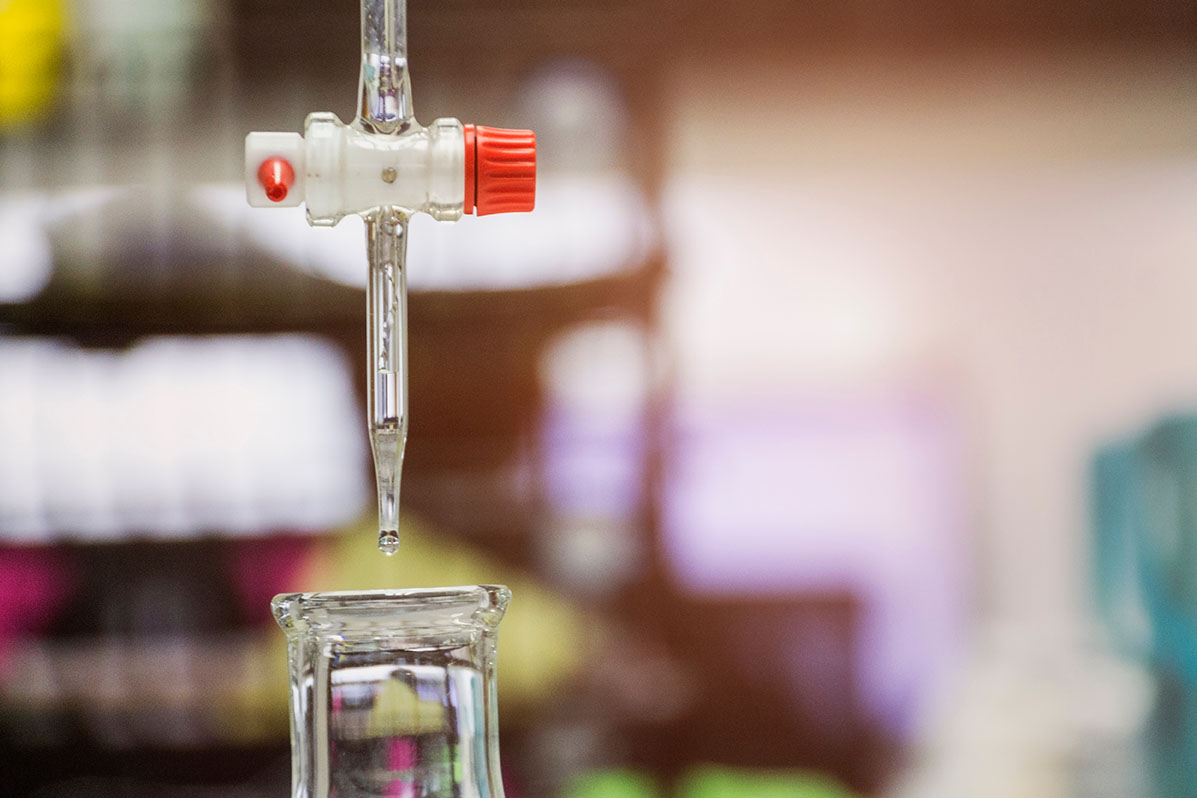

A burette is a piece of laboratory equipment that is used to measure and dispense small amounts of liquid.
A burette is a long, graduated tube with a stopcock at the bottom. The stopcock is a valve that controls the flow of liquid from the burette. The graduations on the burette allow you to measure the volume of liquid that has been dispensed.
Burette is used in titrations, which are a type of chemical analysis. In a titration, a known volume of a solution of known concentration is added to a solution of unknown concentration until the reaction is complete. The volume of the known solution that is added is used to calculate the concentration of the unknown solution.
Burette is a safe piece of equipment when used properly. However, there are some safety precautions that should be taken when using a burette. These precautions include:
The burette was filled with the desired volume of liquid.

Noun: burette.
Plural: burettes.
The word "burette" comes from the French word burette, which means "small, graduated flask." The French word burette is thought to be derived from the Old French word buire, which means "earthenware jug.".
How is a burette used?